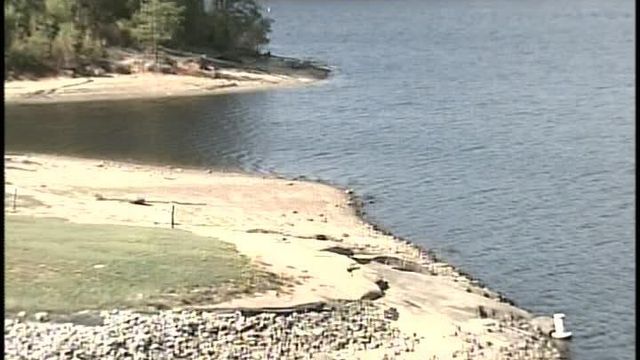Local News
Raleigh Water Customers Have 4-Month Supply Left
City leaders detailed the drought at a meeting. The good news was the restrictions are helping. The bad news was that water levels continue to drop.
Posted — UpdatedRALEIGH, N.C. — New numbers out Tuesday showed Raleigh water customers have a four-month supply remaining.
City leaders detailed the drought at a meeting of the Droiught Management Advisory Council. The good news was the restrictions are helping. The bad news was that water levels continue to drop.
Raleigh's water supply at Falls Lake was at about 42 percent of its capacity Tuesday. If the area doesn’t get any rain and nothing else changes, the city's water supply could be depleted by January, according to the Army Corps of Engineers.
“Yes, it is a serious situation that we all need to keep track of,” said Terry Brown with the Corps.
Cities and towns have already taken steps to prevent that, such as mandatory water restrictions. Raleigh leaders said that step cut usage by 14 percent.
The Corps is also reducing the amount of water released downstream into the Neuse River to keep Falls Lake from draining too quickly.
“Any system would go dry if we don't get any rain, so we are hoping that it is going to rain, but the reality of it is we are in a drought,” said Ed Buchan, a Raleigh water conservation specialist.
Local and state representatives gather monthly to discuss drought issues. At Tuesday’s meeting, forecasters told the group that it still appears a dry fall and winter might also be on the horizon.
“So this is something that will probably be an ongoing issue that we're going to have to deal with, so that's when we start looking into the long-term possibilities,” Buchan said.
Raleigh leaders said that could push the city closer to Stage 2 water restrictions.
Water officials are also talking with downstream communities, like Goldsboro, that get water from the Neuse River. They're looking into possibly feeding the Neuse from another lake.
In a worst case scenario, if Raleigh's water supply runs dry, there is still an emergency backup to tap into.
“Conservation now and conservation later,” Brown said. “Let's hope for the best, and we'll get through this.”
• Credits
Copyright 2024 by Capitol Broadcasting Company. All rights reserved. This material may not be published, broadcast, rewritten or redistributed.






